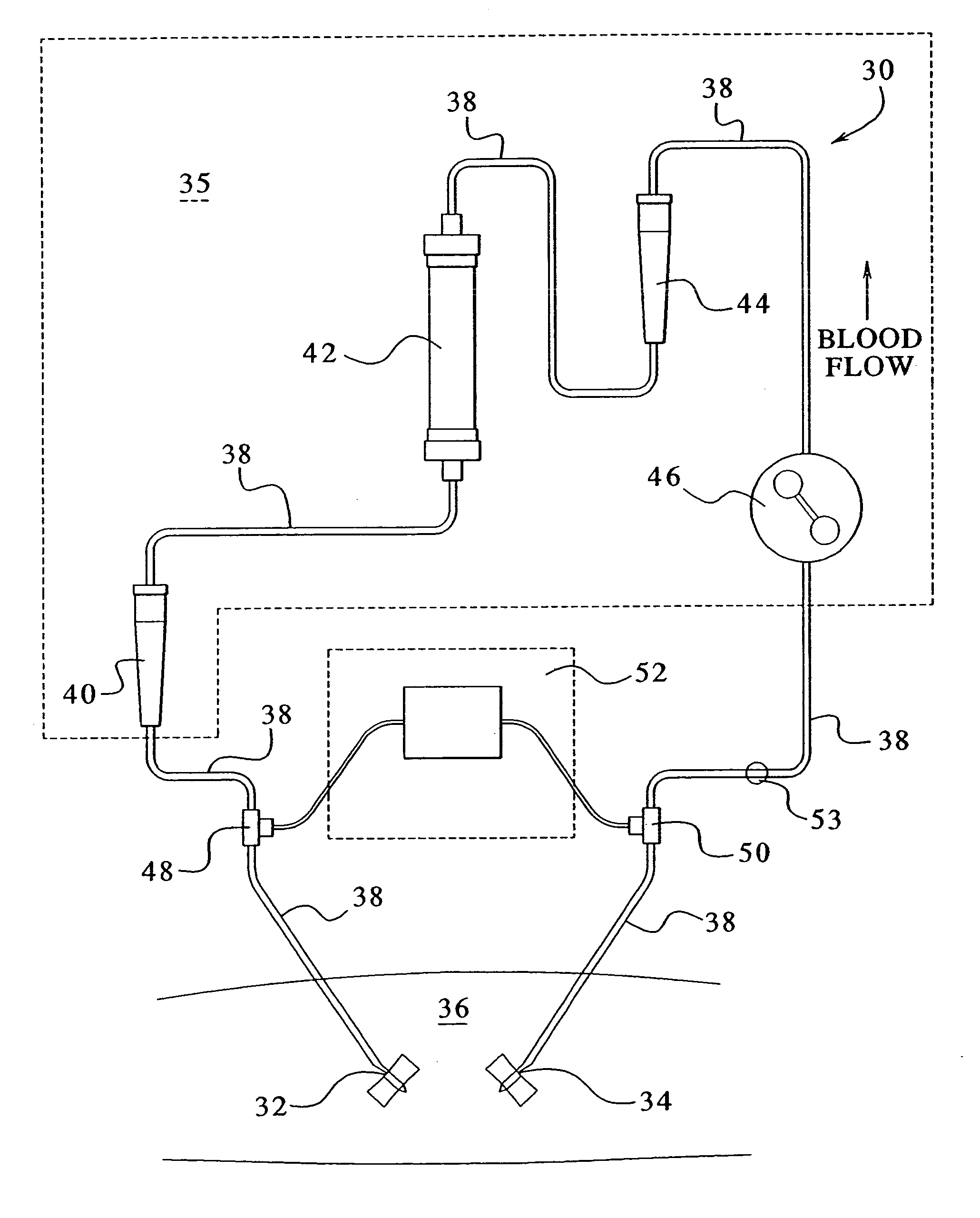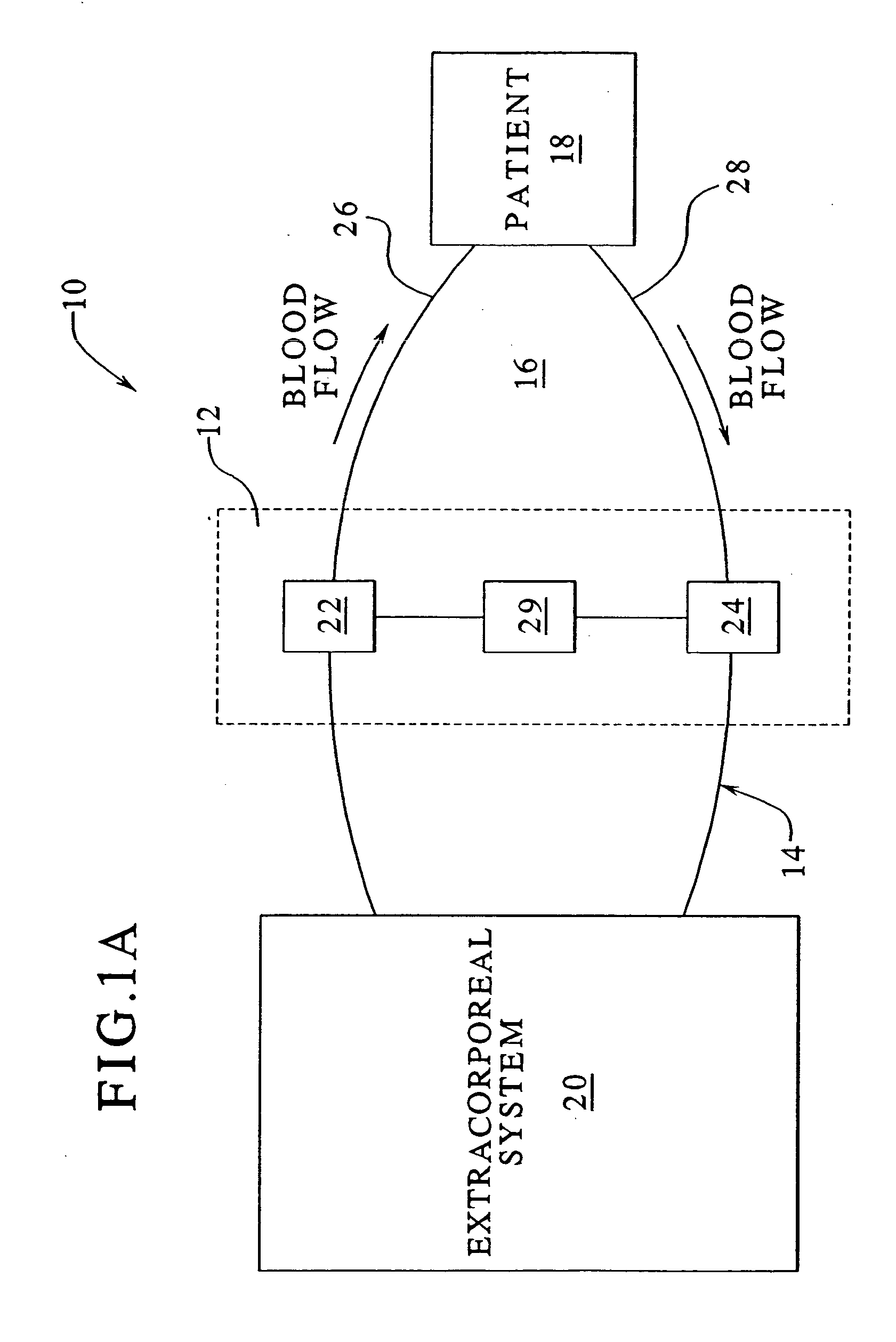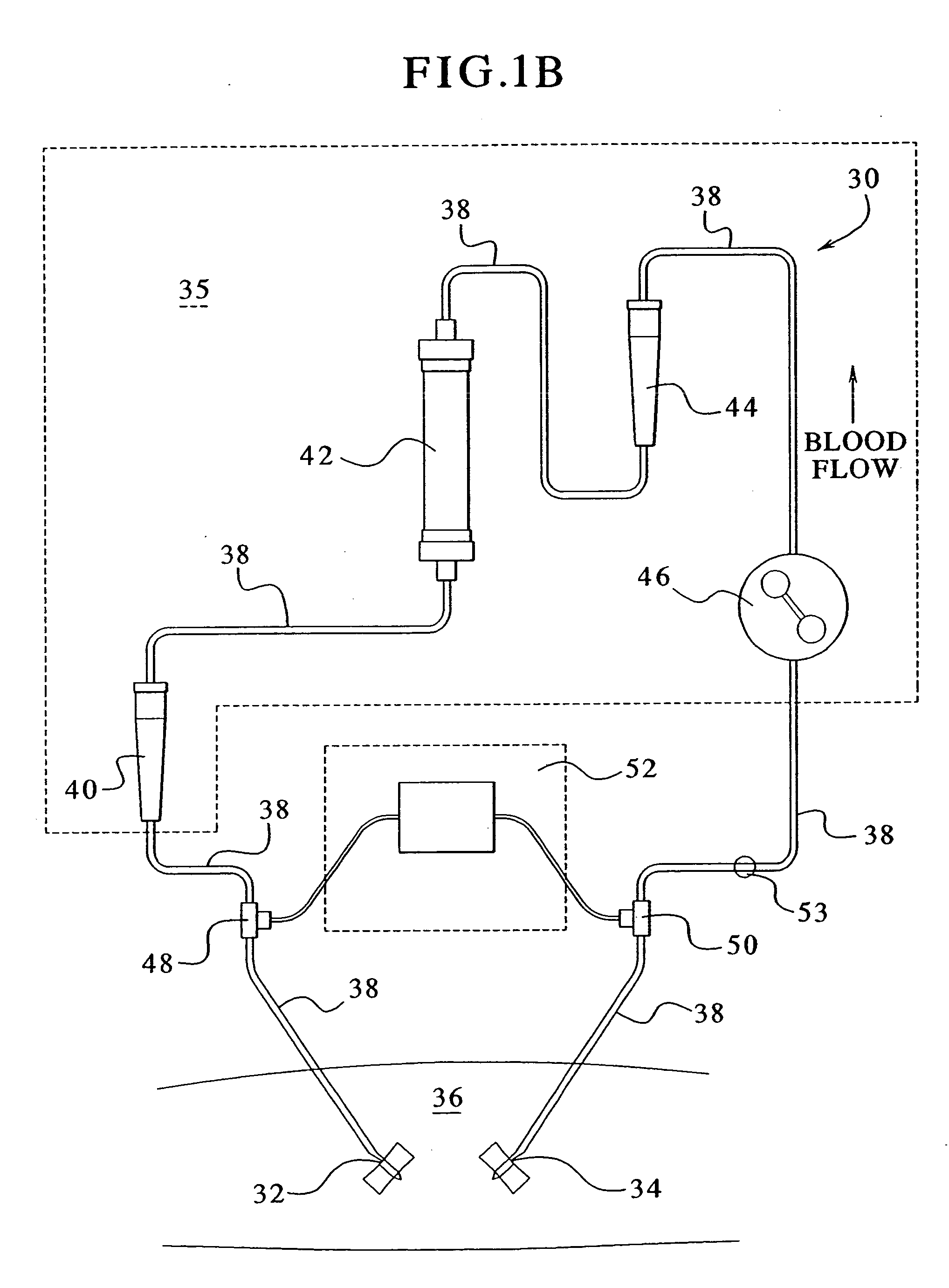Access disconnection systems and methods
a technology of access disconnection and patient, applied in the field of patient access disconnection system and method, can solve the problems of delay detection, significant amount of blood loss to the patient, and risk associated with needle dislocation
- Summary
- Abstract
- Description
- Claims
- Application Information
AI Technical Summary
Benefits of technology
Problems solved by technology
Method used
Image
Examples
Embodiment Construction
[0041] The present invention provides medical devices, apparatuses, systems and methods for detecting access disconnection. More specifically, the present invention provides medical devices, apparatuses, systems, and methods that employ, in part, an electrical circuit with electrical contacts in fluid contact and electrical communication with a fluid circuit allowing a direct conductivity measurement to be used such that dislodgment of a needle or other access device through which fluid flows between a patient and the fluid circuit can be immediately detected. In this regard, fluid loss (i.e., blood loss) due to, for example, dislodgment of a needle from a patient undergoing medical treatment, such as dialysis therapy, medication delivery or the like, can be controllably minimized.
[0042] It should be appreciated that the present invention is not limited to the detection of needle dislodgment but can be utilized to detect the dislodgment or disconnection of any suitable access devic...
PUM
 Login to View More
Login to View More Abstract
Description
Claims
Application Information
 Login to View More
Login to View More - R&D Engineer
- R&D Manager
- IP Professional
- Industry Leading Data Capabilities
- Powerful AI technology
- Patent DNA Extraction
Browse by: Latest US Patents, China's latest patents, Technical Efficacy Thesaurus, Application Domain, Technology Topic, Popular Technical Reports.
© 2024 PatSnap. All rights reserved.Legal|Privacy policy|Modern Slavery Act Transparency Statement|Sitemap|About US| Contact US: help@patsnap.com










